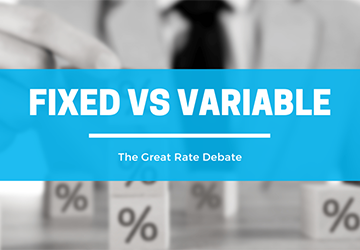The Transformative Impact of AI on the Financial Industry
Artificial intelligence (AI) has significantly impacted many industries, with finance being one of the most important. AI is vital in modern finance because it improves decision-making processes, optimizes operations, and provides a personalized customer experience.

Improving Decision Making
AI's ability to improve decision-making is one of its main applications in the financial sector. AI systems can analyze large amounts of data faster and more accurately than humans. The impact of AI on the financial industry can be seen in the following ways:
1. Algorithmic Trading
AI-driven algorithms analyze market data in real-time and identify trading opportunities that human traders may miss. These algorithms can execute trades at high speeds and frequently, thereby increasing the efficiency and profitability of trading operations.
2. Risk Management
AI can assess and predict risks by analyzing historical data and identifying patterns. Financial institutions use AI to predict market trends, credit risk, and potential defaults, helping them make informed decisions and reduce risk.
3. Fraud Detection
AI systems can detect abnormal patterns and behaviours in trading data and identify potential fraud faster and more accurately than traditional methods; this reduces financial losses and improves security.
Process Optimization
AI technologies in the financial sector streamline various financial operations, improving efficiency and reducing costs. Key areas include:
1. Automation of Repetitive Processes
AI automates data entry, reconciliation, reporting, and other repetitive processes, reducing operating costs and the potential for errors and freeing up employees to perform more strategic tasks.
2. Customer Service
AI-powered chatbots and virtual assistants provide 24/7 customer service and manage various issues and tasks. As a result, customers are happier, and customer service employees have more work to do.
3. Compliance and Reporting
AI helps financial institutions comply with regulatory requirements by automating data collection, analysis, and reporting; this guarantees accuracy and timeliness and reduces the risk of regulatory sanctions.
Personalized Customer Experience
AI improves customer satisfaction by providing customized financial services and solutions; this is achieved through:
1. Personalized Financial Advice
AI analyzes customer data to provide tailored financial advice and product recommendations. For example, robo-advisors use AI to create and manage customized portfolios based on individual risk tolerance and goals.
2. Customer Insights
AI technology in the financial sector makes it easier for financial companies to understand their customers by studying their behaviours and preferences. This allows companies to create customized offers and marketing campaigns for customers and improve customer loyalty and engagement.
3. Better User Interfaces
AI improves the usability of financial applications by providing intuitive and user-friendly interfaces. With voice recognition and natural language processing, consumers can interact with financial services more efficiently and intuitively.
Common Applications of AI in Finance
AI is dramatically changing the financial industry. AI is revolutionizing the functions of financial institutions by improving decision-making, streamlining operations, and personalizing customer experiences. Let's look at some typical applications of AI in the financial sector in recent years.
Algorithmic Trading
AI-driven algorithms analyze market data in real time to identify trading opportunities. For example, Goldman Sachs uses AI algorithms to perform high-frequency trading. By analyzing large amounts of market data, these algorithms enable the company to make trading decisions in a split second, take advantage of tiny price differences, and execute trades faster than human traders.
Risk Management
AI assesses and predicts risk by analyzing historical data and identifying patterns. For example, JPMorgan Chase uses AI to predict credit risk by analyzing customer data, trading history, and market trends. With this approach, JPMorgan Chase manages risk by assessing and substantiating the likelihood of a loan default to make credit decisions.

Fraud Detection
AI algorithms look for unusual behaviour and patterns in transaction data to detect possible fraud. PayPal uses AI to monitor transactions for signs of fraud. By studying user behaviour and transaction history, AI transforms the financial industry by identifying suspicious activity, minimizing fraudulent transactions, and improving user safety.
Automation of Routine Tasks
AI automates repetitive processes such as data entry, reconciliation, and reporting. Erica, a virtual assistant at Bank of America, uses AI to automate financial advice, transaction searches, and bill payments; this reduces operational costs and minimizes errors, allowing employees to focus on more strategically important tasks.
Customer Service
AI-based chatbots and virtual assistants provide 24/7 customer service and manage various issues and tasks. Amy, an AI chatbot from HSBC, helps consumers solve problems and conduct transactions. As a result, customers are happier, and customer service employees have more work to do.
Compliance and Reporting
AI helps financial institutions meet regulatory requirements by automating data collection, analysis, and reporting. For example, UBS uses AI to optimize its compliance processes, including analyzing large data sets to identify regulatory risks and generate timely reports; this reduces the risk of regulatory penalties and improves operational efficiency.
Personalized Financial Advice
AI analyzes client data to provide tailored financial advice and product recommendations. Wealthfront is a robo-advisor that uses AI to create and manage personalized portfolios based on individual risk tolerance and goals; this provides clients with tailored financial advice and investment management services.
Client Insights
AI helps financial institutions understand customer behaviours and preferences to develop targeted marketing campaigns and personalized offers. Citi uses AI to analyze customer spending patterns and preferences. This enables the bank to provide tailored product recommendations and targeted marketing campaigns, which improves customer retention and loyalty.
Improved User Interfaces
AI improves the usability of financial applications by providing an intuitive and user-friendly interface. Mint is a personal finance application that uses AI to offer a seamless financial management interface. Features such as voice recognition and natural language processing allow users to interact with the application more naturally and efficiently.
Conclusion
AI is transforming the financial industry and has become an essential part of it. It drives innovation and changes how financial institutions work and interact with their customers. AI's impact on the financial industry is profound, from algorithmic trading and risk management to personalized financial advice and improved customer interfaces. As AI technology continues to develop, its role in the financial sector will likely expand, bringing new opportunities and challenges to the industry.





